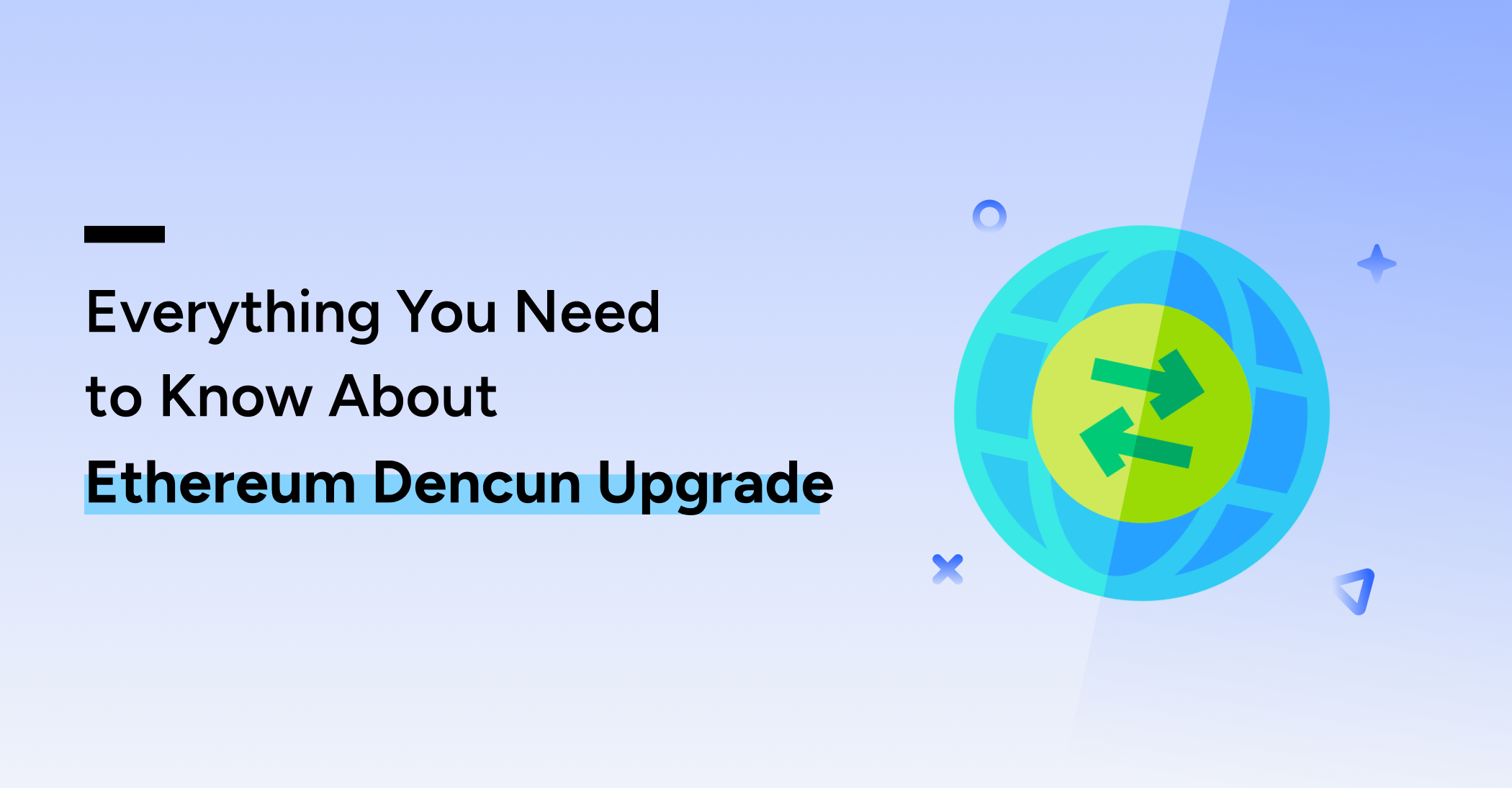
The Ethereum Cancun-Deneb upgrade is a pivotal moment in Ethereum’s pursuit of enhanced scalability and efficiency. At the core of this upgrade is Ethereum Improvement Proposal (EIP) 4844, introducing Proto-Danksharding. This groundbreaking innovation aims to address Ethereum’s high gas fees and improve overall network performance. In this blog, we will delve into the essence of the upcoming Ethereum upgrade and its significant impact on traders and enthusiasts.
What Is the Ethereum Cancun-Deneb (Dencun) Upgrade?
The Ethereum Dencun upgrade, also known as the Ethereum Cancun-Deneb upgrade, which stands as a fundamental pillar of Ethereum’s 2.0 roadmap. Its name is drawing inspiration from the radiant star “Deneb” in the Cygnus constellation, this upgrade assumes a pivotal role in Ethereum’s holistic approach to enhance scalability, fortify security measures, and optimize overall efficiency.
An Introduction to EIPs in the Ethereum Dencun Upgrade
The Ethereum Dencun Upgrade incorporates several significant EIPs (Ethereum Improvement Proposals) that bring notable enhancements to the network. These EIPs aim to improve scalability, data availability, storage efficiency, and overall network security. Let’s explore some of the key EIPs included in this upgrade:
EIP-4844 (Proto-Danksharding): This EIP introduces “blobs” to enhance data availability and storage efficiency on the Ethereum network. It serves as a crucial step towards the full implementation of Danksharding, which will significantly increase Ethereum’s capacity and scalability.
EIP-1153: This proposal introduces transient storage opcodes, allowing temporary storage during smart contract execution. By reducing gas costs and improving scalability, EIP-1153 contributes to a more efficient and cost-effective Ethereum network.
EIP-4788: Enhancing Ethereum’s consensus layer, EIP-4788 introduces Beacon Block Root commits. This improvement enables direct access to updated consensus layer information, enhancing operational efficiency and facilitating smoother network operations.
EIP-5656: With the introduction of the MCOPY opcode, EIP-5656 improves data copying in memory during smart contract execution. This opcode enhances the efficiency of data operations, leading to improved performance and optimized resource utilization.
EIP-6780: Focusing on network security and stability, EIP-6780 aims to restrict the SELFDESTRUCT function in smart contracts. By implementing stricter controls, this EIP strengthens the network against potential vulnerabilities and malicious actions.
The Upgrade Brings Several Benefits to the Ethereum Network
Improved Scalability: By implementing Proto-Danksharding and data “blobs,” the upgrade aims to significantly enhance transaction processing speeds and volumes. This scalability improvement will allow the network to handle a larger number of transactions, leading to a more efficient and responsive Ethereum ecosystem.
Lower Gas Fees: The upgrade introduces features like transient storage (EIP-1153) and blob-carrying transactions, which aim to make transactions more cost-effective. This reduction in gas fees will make Ethereum more accessible and affordable for users, encouraging wider adoption and usage.
Enhanced Security: Through EIP-6780, the upgrade focuses on strengthening the network’s security. By incorporating advanced cryptographic techniques and reinforced network protocols, the Ethereum Cancun upgrade aims to make the network more resilient against security threats, providing users with a safer environment for their transactions and assets.
Optimized Data Storage: The implementation of sharding as part of the upgrade improves the blockchain’s data storage capabilities. Sharding divides the network into smaller, more manageable pieces, increasing overall capacity and efficiency. This optimization leads to faster processing, reduced congestion, and improved scalability and performance.
The Impact of Ethereum Dencun Upgrade to Users & Developers
The Ethereum Dencun Upgrade, as a crucial step towards Ethereum 2.0 and Danksharding, will have a significant impact on both users and developers in the Ethereum ecosystem:
Benefits for Users
- Faster Transactions
The upgrade’s improved scalability, particularly through Proto-Danksharding, will enable faster transaction processing. Users can expect reduced confirmation times and improved overall transaction speed.
- Lower Gas Fees
The goal of reducing Ethereum gas fees to less than $0.001 will make transactions more cost-effective for users, encouraging increased adoption and usage of the network.
- Enhanced Security
With the transition to a stake-based system, Ethereum’s security will be strengthened. Users can have greater confidence in the security of their transactions and assets on the network.
Benefits for Developers
- Robust Environment for dApp Development
The Ethereum Dencun Upgrade provides developers with a more powerful and efficient platform for building decentralized applications (dApps). Increased scalability and reduced gas fees create an environment conducive to developing complex and resource-intensive applications.
- Expanded Data Storage
The introduction of “blobs” and the increased data bandwidth per slot opens up opportunities for developers to store and access larger amounts of data. This enhancement enables the development of more data-intensive applications and innovative use cases on the Ethereum network.
- Potential for ETH Liquid Staking
The upgrade could potentially revive ETH liquid staking, allowing users to participate in staking activities and earn rewards while maintaining liquidity. This feature provides users with additional options for participating in the Ethereum ecosystem.
The upcoming Ethereum 2.0 Cancun-Deneb upgrade is generating a lot of excitement within the Ethereum community. This upgrade represents a crucial step in Ethereum’s evolution, as it aims to address the network’s scalability and efficiency challenges. With the introduction of Proto-Danksharding, Ethereum is demonstrating its commitment to constant improvement and innovation. This upgrade, along with the eventual implementation of full Danksharding, is expected to significantly enhance Ethereum’s scalability, efficiency, and overall user experience. As a result, the crypto market can anticipate a transformation parallel to Ethereum’s evolution, offering traders and investors new and exciting opportunities within the Ethereum ecosystem.
